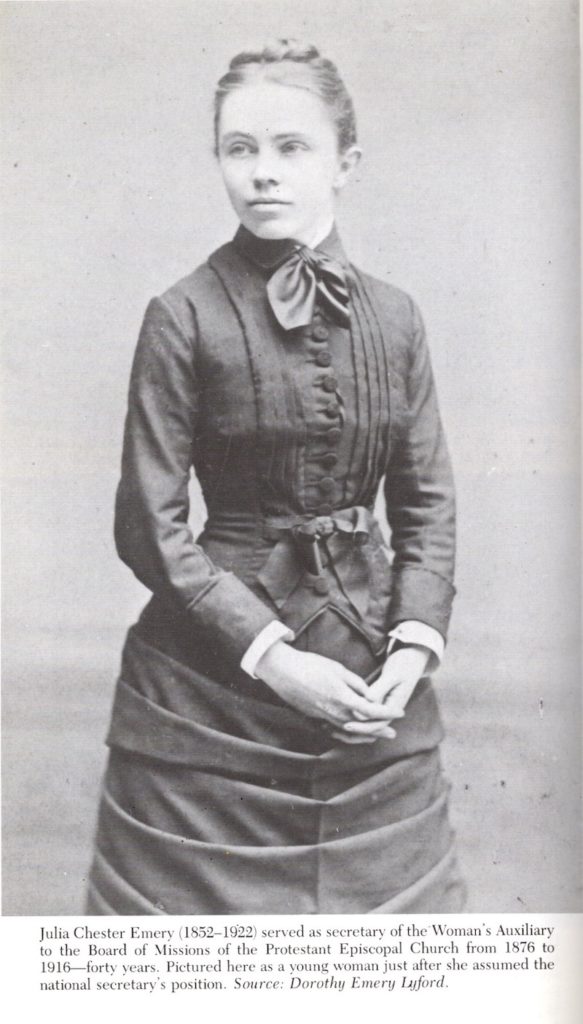By Sherri Dietrich, UTO Board President

Our next icon in this year’s celebration of Julia Chester Emery’s life and work will be released near Easter. Kristen Wheeler, the artist, has already begun her work on this icon; you can check out her Instagram and see how she shares progress. You can also see and purchase some of Kristen’s previous icons on moderniconographer.com. The rest of this article comes from her website, where she explains her icon writing process and icons in general.
What is your process of writing icons? What materials do you use?
Icon writings take time. Not just because the sketching, painting, and details take time, but because I study each saint before I write them. I pray with the saints, I learn their unique stories, and sometimes certain saints require more of my attention. Before I start painting, I search for documentaries and books and educate myself as much as I can on their unique stories. I prepare a wood block panel with gesso and gather as many image references as I can on your saint to use as I am painting. I freehand sketch and lay out the drawing directly on the wood panel once the gesso is completely dry. I use a combination of gouache and acrylic paints, and ink/paint pens for the details. Once an icon is complete, I seal the paint with an acrylic spray and sign the back, then I scan it into the computer at a very high resolution so I can make reprints. Once all of this is complete, I have an Episcopal priest bless the icon for you (unless you have someone you know that would like to bless it) and then it is packaged for delivery and on its way to you!
What is modern iconography?
“Iconography is the original tradition of Christian sacred art and has been an integral part of the worship and mystical life of Christians since apostolic times. Referred to in the Eastern Christian tradition as ‘windows into heaven,’ they have inspired and uplifted millions of the faithful, and have at times been the instruments for demonstrating God’s miraculous intercession in the life of mankind.” (from “A History of Iconography” video)
I call my interpretation “modern iconography with a folk-art twist.” Traditional iconographers use centuries-old icons to paint and copy from. Icons are generally painted using egg tempera on specially prepared wooden panels, or on cloth glued onto wooden panels. Gold leaf is frequently used for halos, background areas, and gilding of special items depicted with the saints. Because I do not follow these traditional techniques, I consider myself a modern iconographer. I use the materials available to me, but with respect and honor to the traditional art by studying the saints before I paint them, praying with them, then adding my own style and technique.
We’ve created a new page in the history section of our website dedicated to Miss Emery, along with materials you can use to help share her story on social media and with your congregations and dioceses.
To purchase a print of our first icon, created by Marcy Hall, visit this page.
